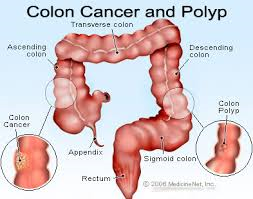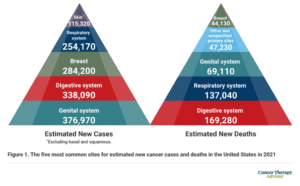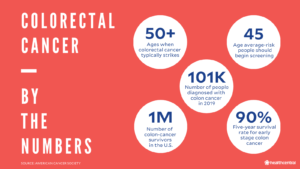This is held in March each year, offers healthcare providers who care for patients with diseases of the colon and rectum a valuable opportunity to educate their community about these diseases and promote awareness of the importance of colorectal cancer screening, prevention, and treatment. These efforts may also provide a window into the profession and encourage others to consider careers in the field of colon and rectal surgery.
Not counting some kinds of skin cancer, colorectal cancer is the fourth most common cancer in men and women. It is the fourth leading cause of cancer-related deaths in the United States.
Colorectal cancer is now the fourth most common cancer in men and women. It is the fourth leading cause of cancer related deaths in the United States stated the Center for Disease Control (CDC) and Prevention. Colorectal cancer affects people in all racial and ethnic groups and is most often found in people age 50 and older.
CDC states today counting some kinds of skin cancer, colorectal cancer is the fourth most common cancer in men and women. It is the fourth leading cause of cancer-related deaths in the United States.
The good news? If everyone age 50 and older were screened regularly, 6 out of 10 deaths from colorectal cancer could be prevented. Communities, health professionals, and families can work together to encourage people to get screened.
How can Colorectal Cancer Awareness Month make a difference?
We can use this month to raise awareness about colorectal cancer and take action toward prevention. Communities, organizations, families, and individuals can get involved and spread the word.
Here are just a few ideas:
- Encourage families to get active together – exercise may help reduce the risk of colorectal cancer.
- Talk to family, friends, and people in your community about the importance of getting screened for colorectal cancer starting at age 50.
- Encourage people over 50 to use this interactive tool to decide which colorectal cancer screening test they prefer.
- Ask doctors and nurses to talk to patients age 50 and older about the importance of getting screened
Among cancers that affect both men and women, colorectal cancer is the second leading cause of cancer deaths in the United States. Every year, about 140,000 Americans get colorectal cancer, and more than 50,000 people die from it.
- Risk increases with age. More than 90% of colorectal cancers occur in people aged 50 and older.
- Precancerous polyps and colorectal cancer don’t always cause symptoms, especially at first. You could have polyps or colorectal cancer and not know it. That is why having a screening test is so important. If you have symptoms, they may include—
- Blood in or on the stool (bowel movement).
- Stomach pain, aches, or cramps that do not go away.
- Losing weight and you don’t know why.
These symptoms may be caused by something other than cancer. If you have any of them, see your doctor.
- There are several screening test options. Talk with your doctor about which is right for you.


